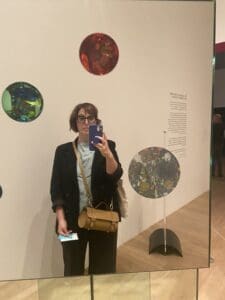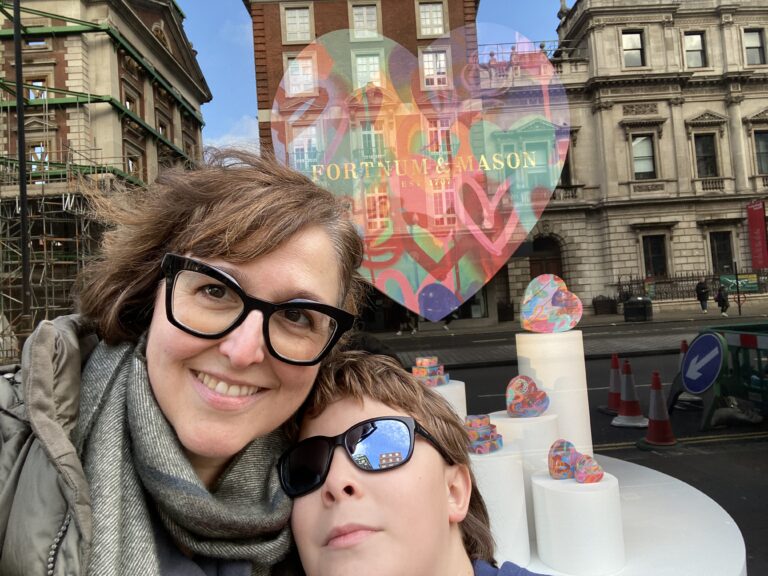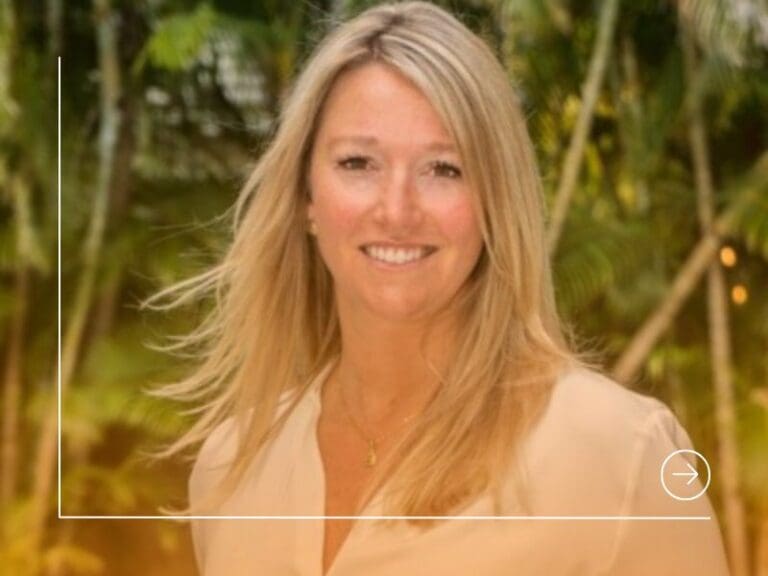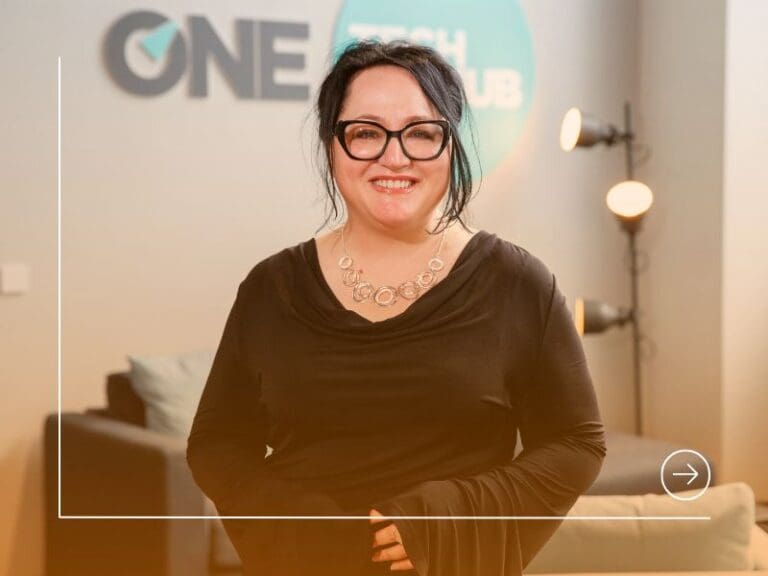I started my career as a scientific researcher in Complex Systems in Biophysics.
After a few years in Academia, I felt the need for a more impactful job and also craved for a better work-life balance after my son was born. So I moved to industry as a data scientist, where I’m still solving complex problems (but in a more pragmatic way this time!).

Did you (or do you) have a role model in tech or business in general?
I do! I have many women as role models, most of whom I can call friends. They inspire me on how to be better professionally and as a human being. I have been lucky enough to meet strong wise women during my career (in Science and in Tech), each of them with different superpowers. For instance, I always turn to Federica Capranico (Lead Data Scientist at Vista) when I have questions regarding how to theoretically frame a problem. I turn to Judit Xaubet (Associate Director of Data Science at Novartis) when I need advice regarding career advancement or how I can better prioritize my workload. The three of us used to work together, and from teammates we became friends. And I could go on and on!

It is particularly helpful to be able to discuss work-life balance with other tech women with family obligations (whether their situation is that they have children or elders they contribute to care for). As our society still holds different expectations for women, learning from the experience of women facing similar challenges gives me courage to break some of these expectations.
What are you most proud of in your career, so far?
I am really proud of having made the leap from scientific research as a biophysicist to data scientist in industry. As a biophysicist, I studied complex systems in living cells and understanding life through this lens changed the way I see the world. At Vista I’m working in Manufacturing and, just like a cell, our plants are extremely organized and optimized; in both cases, raw materials enter the system and experience different transformation processes in an orchestrated way.

What I loved most about being a research scientist was the early phase of a project: identifying a gap in our knowledge. It feels like being an explorer or even an adventurer – you never know where you’ll end up or what techniques you’ll use. A professor at Caltech called this phase “quick and dirty”: it’s all about discovery, playing, and exploiting our inner curiosity. In industry, we’re often in the discovery phase, but instead of publication, the end goal is application. The most rewarding part of my job is seeing a model I’ve created helping customers. That’s something I can only get in industry.
What does an average work day look like for you?
In terms of structure, at Vista we are remote first and have lots of flexibility in our schedule. I do have some fixed touch points with my teams, usually one in the morning with my team in Europe and one in the afternoon with my team in the US / CA. From here, we all have full visibility into who is online so that we can jump on ad hoc working sessions if needed. I’m usually working on how to solve a specific problem and once I have the theory I can proceed to code; in any of these situations, I know who I need to ping for brainstorming and help. Truth is that this autonomy gives me the possibility to take care of my 10 year old son as a solo parent. Also, a few months ago we welcomed Cabom, a Bernese Mountain dog puppy, to our family of two (now three!). Something I could have never dreamt of when I was in Academia.
In my experience, this flexibility combined with interesting projects is what makes tech the perfect place to flourish professionally while having a rich personal life.
Has anyone ever tried to stop you from learning and developing in your professional life, or have you found the tech sector supportive?
Just once in my whole career, it did happen in the tech sector but I think it was a culture problem from one particular company. At that time I was working as a Data Scientist consultant and I was doing a postgraduate course on Deep Learning at the university (in my evenings and weekends). However, there was one specific day that I needed to leave the office earlier than usual to attend an out-of-schedule class. Despite the permission of the section manager, my immediate supervisor was not happy with that and confronted me. It was a very uncomfortable situation (thus the last piece of advice I’m giving at the end of the blog!).

But other than this incident, I have found the tech sector incredibly supportive. Just to name an example, Vista sponsors their employees’ learning fees on official courses; thanks to this program I’ve been able to enroll in the MIT Professional Education on Smart Manufacturing, where I learnt the best way to apply the simulation tools I used during my scientific career into shop floor processes.
What advice would you give other women wanting to reach their career goals in technology?
I would offer three pieces of advice:
Look for an industry that provides you with awesome data to work with.
Be confident in your ethical views and look for projects that have a positive impact in the world.
Find a job you love – and that loves you back. I have really strong feelings on this one!








